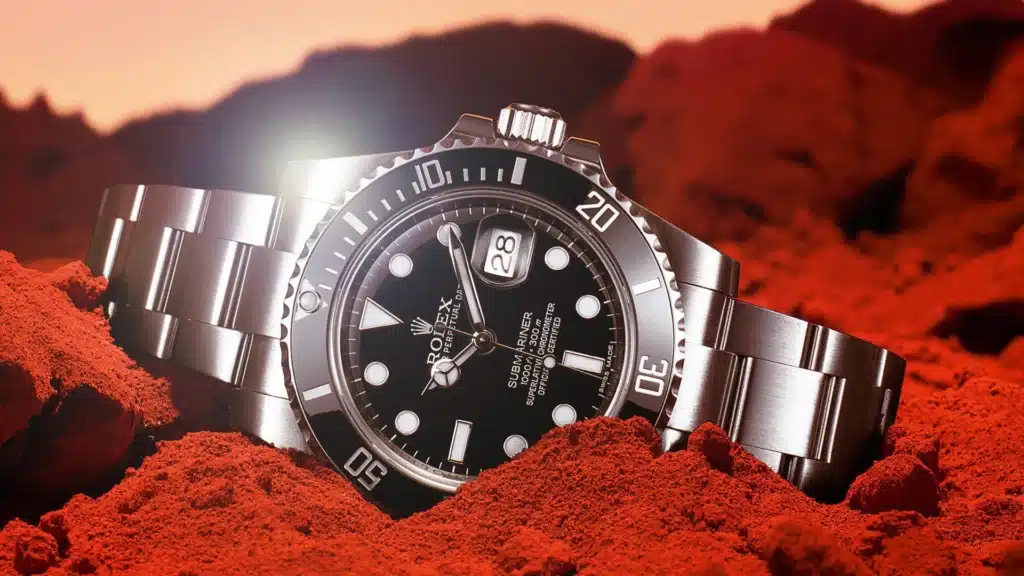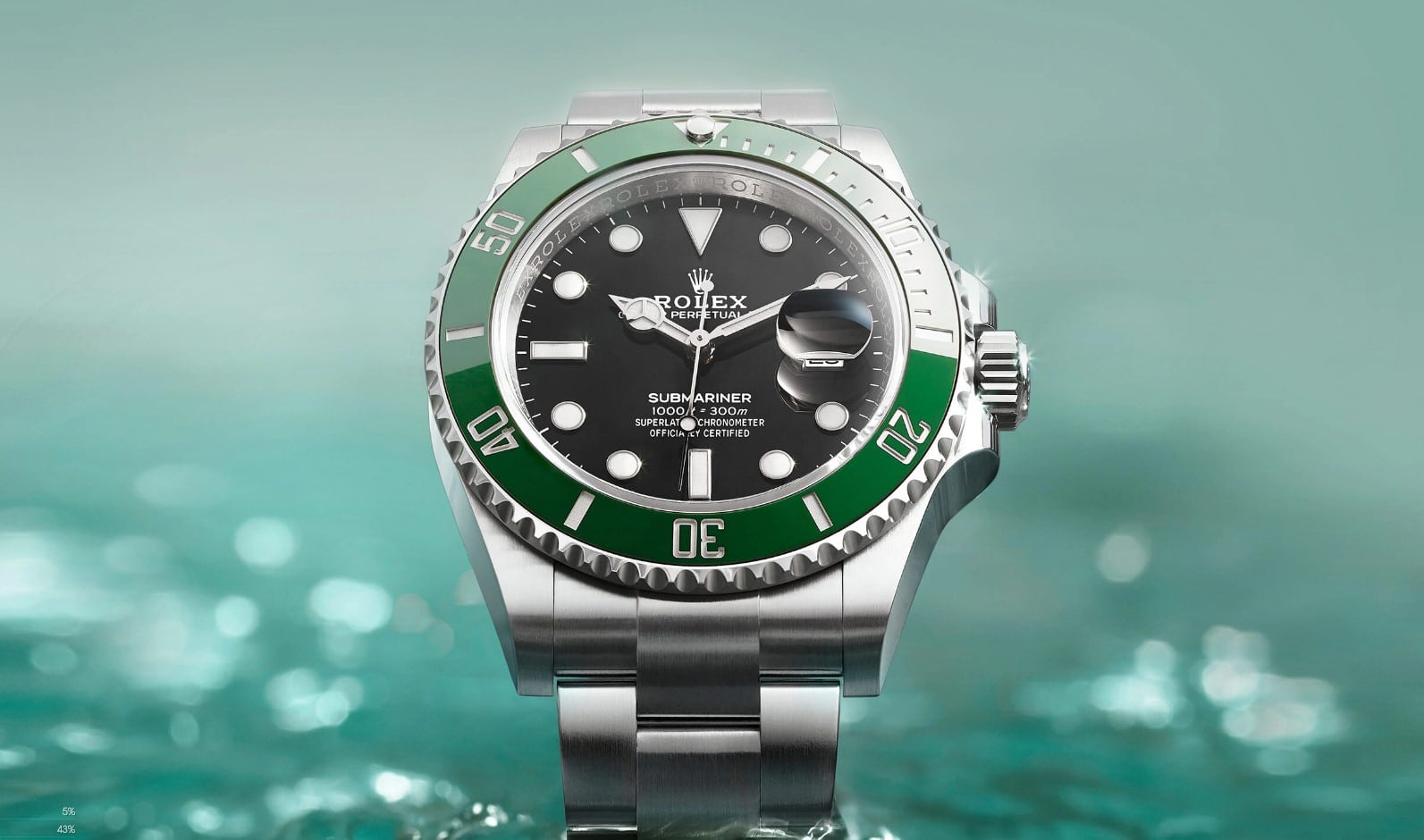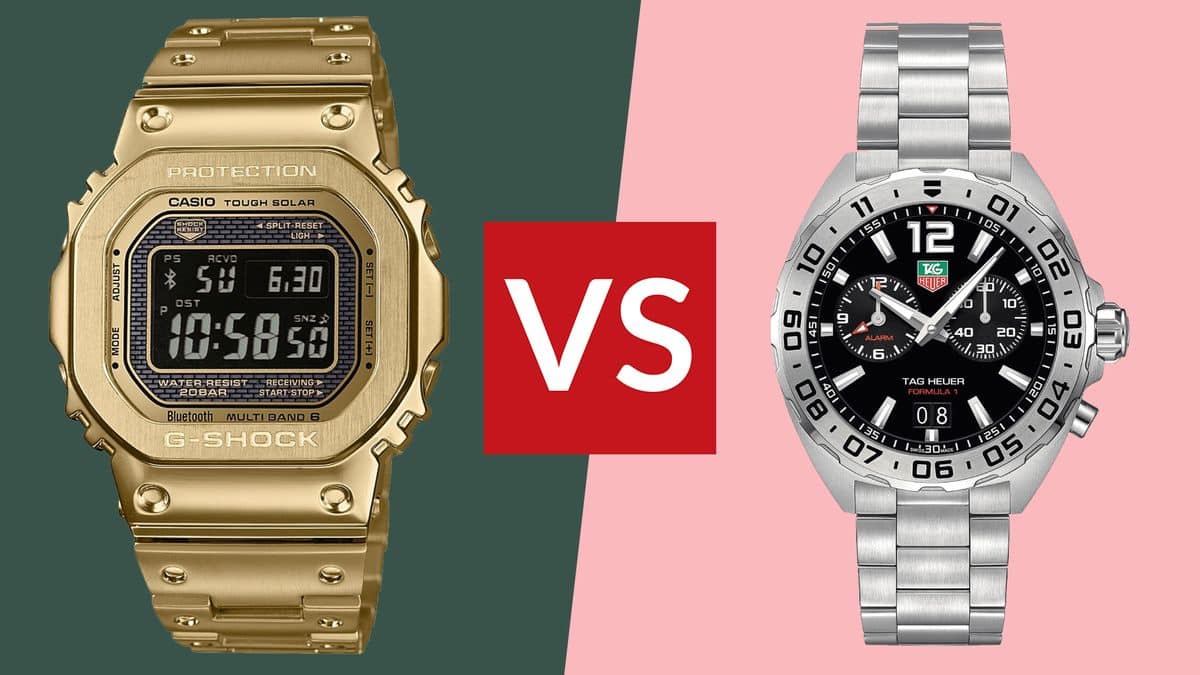Introduction
Watches are statements of style, history, and even personality rather than only means of telling time. Choosing between Analog and digital watches is about more than simply appearance; it’s about selecting the correct wristwatch for your tastes and way of life. This tutorial explores the ageless argument between Analog and digital watches in great detail so you may choose which one best fits you. To help you decide more quickly, let’s examine the special qualities, benefits, and subtleties of every style.
The Timeless Elegance: Defining An Analog Watch
An analog watch is the height of custom and traditional design. It shows hour, minute, and occasionally secondhand movements around a dial, linking users to the centuries-old craft of watchmaking. Analog watches may feature exquisitely crafted faces and mechanisms—such as Roman numerals or complex patterns—that transform every piece into a work of art. Digital watches often cater to an active lifestyle, offering rugged designs that can withstand water, shock, and rough environments.

Analog Watches characteristics include:
- Usually, with Roman or Arabic numerals, the face shows 12-hour intervals in traditional design.
- Analog watches can run more modernly and are battery-powered using complex mechanical systems or quartz movement.
- Analog watches span simple designs to sophisticated chronographs with several subdials in terms of style. Reading the time on a digital display is quick and straightforward, making it perfect for those on the go or engaged in high-intensity activities.
- For many, wearing an Analog watch is more about elegance and style than anything else; hence, it is the ideal accompaniment for formal events.
Why Choose An Analog Watch? – The Classic Attractiveness
The Analog timepiece is for everlasting elegance. For individuals who respect history and design in their accessories, it is the first choice since it shows respect for custom and artistry. Digital watches are often more precise and come packed with additional features such as alarms, timers, calendars, fitness tracking, and even connectivity with your smartphone.
Elegance that Never Ages
Analog timepieces are a byword for elegance and luxury. Analog designs have been the foundation of brands such as Rolex, Omega, and Patek Philippe; these clocks are considered as markers of success and status. Analog watches offer a certain class that digital ones often cannot, whether they are a sleek modern Omega or a classic Rolex Datejust.
Craftsmanship and durability
Particularly, mechanical analog timepieces demonstrate amazing engineering. Every element combines to create watches that could last generations. Many analog timepieces guarantee a lifetime by featuring robust materials, including stainless steel and sapphire crystal glass.
Timeless Look for Every Event
An analog watch is always in style, from black-tie parties to boardroom meetings. An analog clock accentuates a suit, a cocktail dress, or even casual wear with an air of elegance thanks to its wide range of designs—leather straps, metal bracelets, and classic dials.
No need for regular battery changes
Many analog watches run on mechanical mechanisms, so they seldom need batteries. This is useful and environmentally benign, as automatic watches wind themselves using kinetic energy.
Related to Tradition
Having and donning an analog watch lets you engage in centuries of horological history. Analog watches are artifacts of precision engineering for collectors and enthusiasts, not only tools. f you prefer a more professional or classy aesthetic, analog watches may be the way to go. They complement suits, formal attire, and upscale events seamlessly.
What Characterizes A Digital Watch: The Modern Marvel?

Particularly in the 1980s, digital timepieces evolved with new technology and began to represent modernism as symbols. Usually, on an LED or LCD screen, a digital watch shows the time using digits instead of hands dancing around a dial. These timepieces are well-known for their simplicity, usefulness, and even futuristic look.
Features of Digital Watches
- Often, with seconds added, time is shown quantitatively in hours and minutes.
- Digital watches often include built-in alarms, stopwatches, and even GPS or heart rate monitoring.
- Most digital watches have a backlight for simple night reading.
- Digital watches usually run on batteries, which can have to be changed every few years.
Why Choose A Digital Watch From The Modern Edge?
A digital watch gives your wrist modern technology and convenience. It’s perfect for the tech-savvy and those who value multifarious accessory functionality.
Classic Appeal: Analog watches have stood the test of time for a reason. They offer a timeless, elegant look suitable for formal occasions, business meetings, and events where style matters.
Wide Variety: With countless options in terms of design, materials, and features, you can find analog watches that are minimalistic, luxurious, sporty, or vintage.
Complexity & Craftsmanship: High-end analog watches often showcase intricate craftsmanship and mechanical movements, making them both functional and beautiful pieces of art.
Packed with qualities fit for an active life
If you lead an active lifestyle, your best friend could be a digital watch. Many digital watches have alarms, GPS, step counts, and heart rate monitors, among other things. Watches like the Casio G-Shock or Garmin sports watches give fitness buffs a broad spectrum of health and activity tracking.
Accuracy and Precision
Digital watches offer unmatched accuracy when it comes to displaying time. Should your watch get knocked out of sync, you have no need to worry about resetting it; the digital display guarantees you are reading the precise time to the second. Analog watches are versatile fashion statements that blend seamlessly with casual or formal wear.
Perfect for casual attire
Digital timepieces are ideal for daily wear because they are sporty and laid-back. Whether you’re doing errands, going to the gym, or going for a run, a digital watch provides durability and utility that accentuates a laid-back style. Digital watches offer a futuristic, sporty edge that pairs well with activewear and modern street style.
Your Fingertips’ Innovative Technology
Many digital watches now include smartwatch functions, which let you control music, get alerts, and even make phone calls straight from your wrist. These clever features offer a degree of convenience never possible with analog watches.
Affordability
Generally speaking, digital watches are more reasonably priced than upscale analog timepieces. A digital watch could be your best bet if you search for a dependable watch without breaking the budget. Choose Digital if you value precision, tech-savvy features, and versatility for an active lifestyle.
Which One— Analog Or Digital—Should You Use?

After we have discussed the main characteristics and advantages of analog and digital watches, it is time to choose which one fits your taste and way of life. These ideas should assist you in making decisions.
Style Preference
Analog watches are always in trend if you want a classic, sophisticated appearance. They are the ideal choice for formal occasions and situations. If you prefer a sporty, casual look with modern technology, a digital watch or smartwatch would be your greatest friend.
Functioning
Are you a fitness buff or outdoor enthusiast looking for a watch with GPS, an altimeter, or a step counter packed with capabilities? Pick a digital watch. They may require periodic maintenance, such as battery changes or winding for mechanical models, but their longevity and heirloom potential often outweigh the effort.
Do you enjoy the artistry of classic watchmaking and cherish simplicity? This watch is probably your best match. Because of their classic and refined looks, analog watches are better suited for formal meals, meetings, and weddings. Hiking, focusing on your health objectives, or spending the day at the gym—a digital watch provides the dependability and tools you’ll need.
Long-Term Value
This timepieces, particularly high-end models, are valuable and even considered heirloom items. Companies with great investment potential are Rolex and Patek Philippe. Although digital watches might have different resale values, their great value for their extensive range of features makes them usually more reasonably priced upfront.
The Hybrid Solution: Why Not Both?
Hybrid watches have recently become popular because they combine the modern conveniences of digital watches with the traditional design. With conventional hands and digital displays that provide additional features like notifications and fitness tracking, these watches provide the best of both worlds. Companies such as Withings and Fossil are pioneering hybrid watch technologies.
Digital watches are often more precise and come packed with additional features such as alarms, timers, calendars, fitness tracking, and even connectivity with your smartphone. Those with a focus on sports, fitness tracking, or who enjoy a tech-savvy gadget should consider digital watches, which often come equipped with heart rate monitors, GPS, and other handy tools.
Conclusion
Your personal style, needs, and intended use of your timepiece will determine whether you choose an analog or digital watch. An analog watch will always be a wonderful fit if you appreciate long-lasting artistry, elegance, and legacy. Conversely, a digital watch will be useful if you require sophisticated tools, accuracy, and a more laid-back, sporty look.
In the end, both decisions are about what best fits your tastes and way of life; you must go right with both. So review your outfit, consider your daily activities, and choose whether you would prefer a tech-driven wonder on your wrist or a timeless piece of horological history. Whichever you go for, your next watch will definitely be noteworthy!
Frequently Asked Questions
1. In what ways could an analog and a digital watch differ?
Usually employing digits or Roman numerals, analog watches show time on a dial using revolving hour, minute, and occasionally second hands. Conversely, digital watches show time numerally on an LED or LCD screen. While digital watches concentrate on usefulness and technology, This watches sometimes give design and artistry top priority.
2. Is a digital or analog watch more accurate?
Because they run on quartz or electronic movements, which maintain exact time down to the second, digital watches are often more accurate than traditional clocks. Though they may lose or gain a few seconds every day, analog watches—especially those with mechanical movements—are nevertheless accurate timekeepers.
3. Would formal events call for analog watches instead?
Indeed, analog timepieces’ exquisite and classic styles usually make them favored for formal events. For formal dinners, business meetings, and weddings, luxury watches—with their traditional dials and elegant materials—are thought of as chic accessories.
4. Can outdoor activities and fitness benefit from digital watches?
I’m quite sure! Digital watches abound with advanced capabilities, including heart rate monitors, GPS, altimeters, and fitness monitoring. Companies like Casio G-Shock and Garmin focus on digital timepieces that are robust and tough and ideal for outdoor enthusiasts or sports.
5. Are batteries needed for analog watches?
Not every watch calls for batteries. Mechanical watches—especially those with automatic movements—use a mainspring to run the watch, therefore saving batteries from use. Quartz watches do, however, need batteries, which usually need to be changed every few years.






